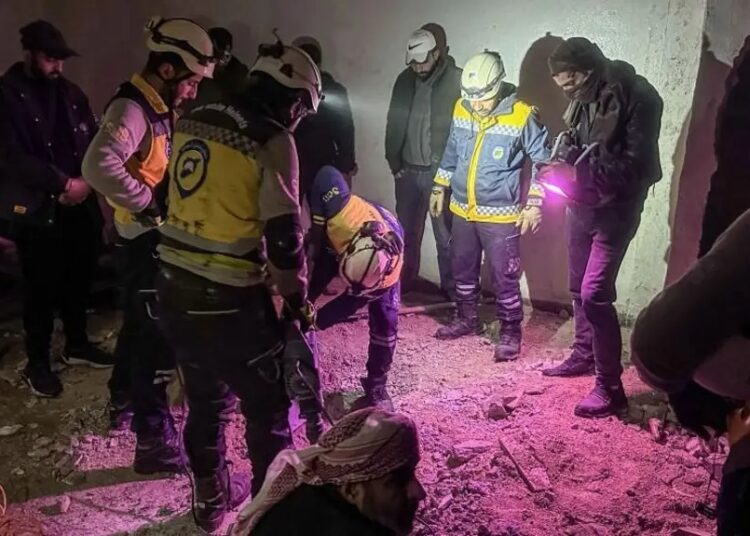Efforts to locate prisoners reportedly held in secret underground cells at Saydnaya Prison in Damascus have intensified following the overthrow of Bashar al-Assad’s regime.
The Syrian civil defense group, known as the White Helmets, deployed specialist teams to the infamous prison to investigate claims that detainees were trapped in hidden tunnels.
“So far, we have not found any of the secret doors being talked about,” a White Helmets official said. “But we will keep searching with the help of people who know the prison’s entrances and secret passages.”
Saydnaya Prison, notorious for the reported torture and execution of thousands of opposition supporters during Assad’s rule, became the focal point of renewed hope for many Syrians desperate to find missing loved ones.
The effort to uncover these underground cells came after Assad fled to Russia, where he has reportedly been granted asylum, following a swift offensive by rebel forces led by Hayat Tahrir al-Sham (HTS). The rebel group seized control of Damascus on Sunday, effectively ending Assad’s decades-long grip on power.
Rebels claimed they freed over 3,500 prisoners during their takeover of the capital. However, accounts from former inmates suggest that more individuals may still be trapped in hidden underground cells.
According to the BBC, when reporters visited the prison, they witnessed dozens of men scouring through piles of scattered documents in search of evidence about the fate of missing prisoners. Investigators were seen pounding the ground in a cellar, reportedly used for fuel storage, in an attempt to locate concealed entrances.
“There is no floor plan to confirm underground cells exist,” said a White Helmets member, “only the testimonies of those who endured the horrors of this place.”
Outside the prison, a steady stream of people climbed the steep hill to its entrance, anxiously awaiting any news of their loved ones.
For many Syrians, the issue of missing prisoners has become a symbol of the broader struggle for justice and accountability in the wake of Assad’s ousting. Residents expressed cautious optimism about the future while grappling with the scars left by the former regime.
Leadership














